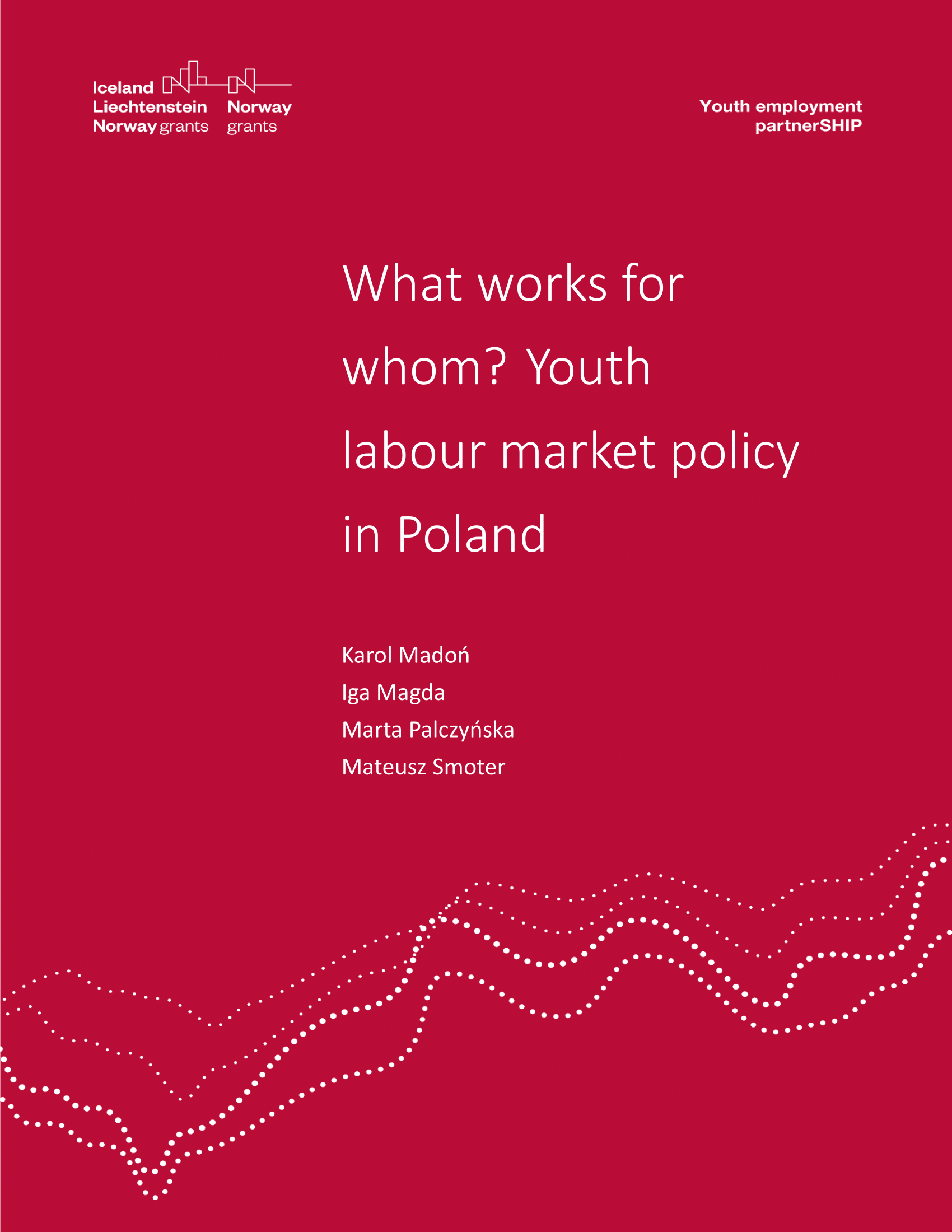This paper compares the relative effectiveness of selected active labour market policies available to young unemployed people in Poland in the years 2015-2016. We use rich administrative data and propensity score matching techniques to control for the non-random selection of unemployed individuals into alternative interventions. We find large negative employment effects of participating in public works programmes, particularly among disadvantaged individuals. The differences in effectiveness between other interventions are rather small, and most become insignificant over time. We also show that vouchers that allow unemployed individuals find on-the-job training providers themselves are more effective than on-the-job training schemes in which the unemployed individuals are directed to the training providers by the public employment services (PES).

This publication was created as part of the “Youth Employment PartnerSHIP” project, which seeks to combat unemployment among young people. It measures the effectiveness of instruments to support young people who aren’t working or studying in four countries: Poland, Spain, Italy and Hungary. The project is financed by Iceland, Lichtenstein and Norway through the EEA and Norway Grants Fund for Youth Employment and co-financed from the funds granted for science in 2018-2022 for the implementation of international projects.

